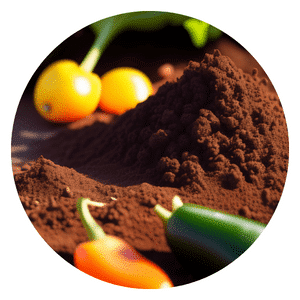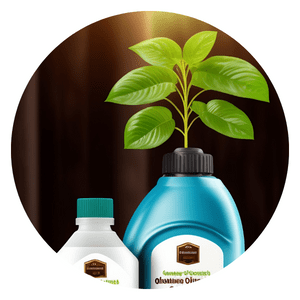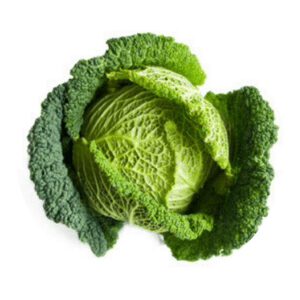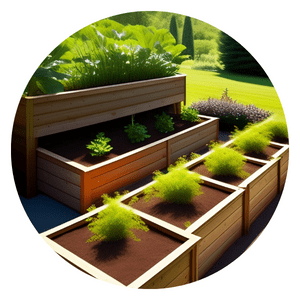How To Compost Goat Manure
Composting is an age-old practice that has gained significant popularity in recent years due to its numerous environmental benefits and the ability to produce nutrient-rich soil.
While many people are familiar with composting kitchen scraps or yard waste, one often overlooked source of organic material is goat manure.
Goat manure is an excellent addition to a compost pile as it contains high levels of nitrogen, phosphorus, and potassium, essential nutrients for healthy plant growth.
In this article, we will explore the steps involved in effectively composting goat manure.
We will cover the key considerations such as selecting the right composting method, maintaining proper ratios of carbon and nitrogen materials, managing temperatures and moisture levels, and addressing common challenges that may arise during the process.

Goat Manur Composting Menu
Collect the Manure
When it comes to composting goat manure, the first step is to gather the manure from your goats or a reliable source.
It is important to collect the manure on a regular basis to keep the goat pens clean and prevent any potential health issues for your goats.
Using well-aged or composted manure is recommended for composting purposes. This is because fresh manure can be too strong and may contain pathogens that can harm plants or humans if not properly treated.
Well-aged or composted goat manure has gone through a natural decomposition process, breaking down into nutrient-rich organic matter that will benefit your garden soil.
The aging process allows beneficial bacteria and fungi to transform the raw waste materials into a stable form of organic matter, which will release nutrients slowly over time. This makes it an excellent choice for improving soil fertility and promoting healthy plant growth.
Fresh goat manure, on the other hand, can be too hot for plants due to its high nitrogen content.
If used directly in your garden without proper aging or composting, it can burn plant roots and hinder their growth.
Additionally, fresh manure may contain weed seeds that can spread throughout your garden beds and cause unwanted weed infestations.
In conclusion, when composting goat manure, it is crucial to gather well-aged or composted manure rather than using fresh manure directly in your garden.
Choose a Composting Method
When it comes to composting goat manure, choosing the right composting method is essential.
One option is to use a compost bin, which provides a contained environment for your compost pile. This can be especially beneficial if you have limited space or want to keep your compost neat and organized.
Another option is a compost pile, which can be more flexible in terms of size and volume. This method allows for larger quantities of goat manure to be composted at once but may require more space in your yard.
If you’re looking for a more specialized approach, consider using a tumbler or vermicomposting system.
A tumbler composter offers the convenience of easily turning and aerating the pile without having to manually mix it with other materials. This can speed up the decomposition process and result in faster nutrient-rich compost.
On the other hand, vermicomposting involves using worms (such as red wigglers) to break down organic matter into nutrient-dense castings known as vermicompost. This method can be particularly suitable for smaller-scale operations or indoor gardening enthusiasts.
Ultimately, when deciding on the best composting method for goat manure, consider factors such as available space, desired speed of decomposition, and personal preferences regarding convenience and efficiency.
Each method has its advantages and disadvantages; therefore, choosing one that aligns with your needs will ensure successful goat manure recycling while generating nutrient-rich soil amendment for your garden or plants.
Mix with Carbon-Rich Materials
Mixing goat manure with carbon-rich materials is an important step in composting to ensure a balanced and effective decomposition process.
The high nitrogen content in goat manure can lead to a strong odor and slow breakdown if not properly balanced with carbon.
By adding carbon-rich materials like straw, dried leaves, or wood chips, you create an ideal environment for microorganisms to thrive and break down the organic matter.
The carbon-to-nitrogen ratio (C:N ratio) is crucial for successful composting.
A C:N ratio of around 30:1 is considered optimal for efficient decomposition. This means that for every part of nitrogen-rich material, such as goat manure, you should add about 30 parts of carbon-rich material to achieve the desired balance.
Straw and dried leaves are readily available options that provide a good source of carbon while helping create air pockets within the compost pile.
Wood chips are another excellent choice as they not only contribute to the C:N ratio but also improve aeration and help maintain moisture levels within the compost pile.
It’s essential to mix these materials thoroughly throughout the pile to ensure an even distribution of nutrients and enhance microbial activity.
By achieving the right balance between nitrogen-rich goat manure and carbon-rich materials, you can create nutrient-dense compost that will benefit your plants and garden significantly.
In nature's sacred alchemy it lies, Compost blend, where secrets harmonize. From humble goat, manure of greatest worth, A treasure trove unearthed from humble birth. With every turn, the earth rejoices deep, As life renews, and fertile gardens creep. From waste to sustenance, a bountiful plan, Compost goat manure, an ode to this grand.
Chappy The Gardener
Add Water
When it comes to composting goat manure, ensuring the right moisture level is crucial for successful decomposition.
To achieve this, it is important to add water during the mixing process.
The ideal moisture level for goat manure compost is similar to that of a wrung-out sponge. This means that the manure should be moist enough to hold together when squeezed but not dripping with excess water.
Adding water helps create an environment conducive to microbial activity, which aids in breaking down the organic matter.
However, it is essential to avoid waterlogging the compost as excessive moisture can lead to anaerobic conditions and unpleasant odors.
To prevent this, it’s recommended to add water gradually while mixing and monitoring the moisture content regularly.
A good way to check if the compost has reached optimal moisture is by feeling its texture – it should feel slightly damp but not overly soggy.
By following these guidelines and maintaining proper moisture levels throughout the composting process, you can effectively transform goat manure into nutrient-rich humus that will benefit your garden or crops.
Remember that regular turning or rotating of the pile can also help distribute moisture evenly and accelerate decomposition.
With patience and attention, you’ll be able to produce high-quality compost from goat manure while avoiding common pitfalls like dryness or excessive wetness.
Turn the Pile
When it comes to composting goat manure, regularly turning or mixing the compost pile is crucial.
By doing so, you provide much-needed aeration to the pile, which helps maintain oxygen levels and promotes decomposition. This is especially important for goat manure, as it can be quite dense and compact.
Turning the pile every few weeks also aids in breaking down the manure more effectively.
Goat manure contains a high amount of nitrogen, making it a valuable addition to your compost.
However, if not properly broken down, it may release ammonia gas and become too concentrated with nutrients, potentially harming your plants when applied.
To ensure proper decomposition of the manure and prevent any potential issues, make sure to turn or mix the compost pile regularly. This will improve airflow throughout the pile and help create an optimal environment for beneficial microbes to break down the organic matter efficiently.
So remember: don’t neglect this essential step in managing your goat manure compost!
Monitor Temperature and Moisture
Monitor Temperature and Moisture: Check the temperature of the compost pile using a compost thermometer.
The ideal temperature range for composting is between 130-160 F (54-71 C).
If the temperature is below this range, it may indicate that the compost pile is not active enough, which could be due to insufficient moisture or lack of proper aeration.
In such cases, you can turn the pile to introduce more oxygen and water as needed.
Monitoring moisture levels in your compost pile is equally important.
The ideal moisture content for effective decomposition is around 50-60%.
If the pile becomes too dry, it may slow down or even halt the decomposition process.
On the other hand, if it becomes overly wet, it can lead to anaerobic conditions and unpleasant odors. To maintain appropriate moisture levels, regularly check and adjust as necessary by adding water or dry organic materials like straw or leaves.
By consistently monitoring both temperature and moisture levels in your compost pile, you can ensure optimal conditions for decomposition. This will result in faster breakdown of goat manure into nutrient-rich compost that can be used to enhance soil fertility and promote healthy plant growth.
Remember to regularly check these parameters throughout the composting process and make any necessary adjustments for successful goat manure composting.
Allow for Decomposition
Allowing for decomposition is an essential step in composting goat manure.
The composting process relies on natural breakdown of organic materials, and this takes time.
Factors like temperature, moisture, and pile size play a significant role in determining the duration of the composting process. In colder climates, where temperatures are lower, it may take longer for the goat manure to decompose compared to warmer regions.
Moisture is another critical factor to consider when composting goat manure.
The ideal moisture level should be around 50-60%.
Too much moisture can lead to a smelly and slimy pile that does not break down efficiently.
On the other hand, if the pile is too dry, decomposition will be slow or may not occur at all.
The size of the compost pile also affects how long it takes for goat manure to decompose.
Smaller piles tend to decompose faster as they provide more surface area for bacteria and microorganisms to break down the organic matter.
However, larger piles can generate higher temperatures due to insulation from their mass and decompose more rapidly as well.
Overall, patience is key when composting goat manure; it can take several months up to a year before you achieve fully decomposed compost ready for use in your garden or farm.
Regular monitoring of factors such as temperature, moisture levels, and pile size will help ensure optimal conditions for efficient decomposition.
Optional: Cover the Pile
Covering the compost pile with a tarp or other breathable material is an essential step in the process of composting goat manure.
By doing so, you can effectively retain moisture and heat within the pile, creating optimal conditions for decomposition to occur. This is particularly important as goat manure has a high nitrogen content, which can easily dry out and lose its potency if not properly maintained.
Additionally, covering the pile acts as a protective shield against excessive rainwater.
While water is crucial for the composting process, too much of it can lead to saturation and ultimately hinder decomposition.
The tarp or breathable material helps regulate the amount of moisture entering the pile, ensuring that it remains moist but not overly soaked.
Overall, by implementing this optional step of covering the compost pile with a tarp or breathable material when composting goat manure, you are taking proactive measures to maintain ideal moisture levels and create an environment conducive to efficient decomposition.
Compost Maturity
When it comes to composting goat manure, one important aspect to consider is the maturity of the compost.
Compost maturity refers to the stage at which the manure has fully decomposed and transformed into a nutrient-rich organic matter that can be safely used as fertilizer.
One way to determine if goat manure is mature is by its appearance; when fully composted, it will turn dark in color and crumbly in texture. This indicates that the organic materials have broken down completely, leaving behind a fine and uniform consistency.
In addition to its appearance, the smell of mature compost plays a crucial role in determining its readiness.
At this stage, goat manure should no longer carry an offensive odor associated with fresh manure but instead emit an earthy smell.
The distinct aroma is a result of beneficial microorganisms breaking down organic matter into stable compounds like humus – a crucial component for soil health and fertility.
To ensure that your goat manure has reached optimal maturity for use as compost, it’s essential to pay attention to these visual and olfactory indicators.
Once dark, crumbly, and smelling earthy in nature, you can confidently incorporate this mature compost into your garden beds or potted plants as an excellent natural fertilizer.
Use in the Garden
Using goat manure compost in your garden can greatly benefit your plants.
The nutrients present in the matured compost, such as nitrogen, phosphorus, and potassium, can help nourish your plants and promote healthy growth.
To use the compost, simply apply it around the base of your plants or mix it into the soil before planting. This will ensure that the nutrients are readily available to your plants’ roots.
In addition to providing essential nutrients, goat manure compost also improves soil structure and moisture retention.
The organic matter in the compost acts as a natural fertilizer by breaking down slowly over time, releasing nutrients gradually into the soil. This helps prevent nutrient leaching and ensures that plants receive a steady supply of nutrition throughout their growing season.
Furthermore, incorporating goat manure compost into your garden can enhance its overall fertility and resilience.
The beneficial microorganisms present in the compost help improve soil health by increasing its biodiversity and promoting better nutrient cycling.
Additionally, the improved soil structure allows for better water infiltration and root development.
By using goat manure compost as an amendment in your garden soil, you not only provide essential nutrients to your plants but also contribute to building a healthier and more sustainable gardening environment.
Compost Tea
Compost tea can be used as a natural fertilizer for plants, providing them with essential nutrients such as nitrogen, phosphorus, and potassium.
These nutrients are released slowly, promoting healthy growth and preventing nutrient imbalance.
Additionally, the beneficial microorganisms present in compost tea help to improve soil health by breaking down organic matter and suppressing harmful pathogens.
Using compost tea on your garden or farm can also aid in water retention and reduce the need for chemical fertilizers.
The organic matter in the tea helps to improve soil structure, allowing it to hold more moisture and reducing runoff.
This not only conserves water but also ensures that plants have access to a steady supply of moisture, even during dry periods.
Furthermore, compost tea can be applied directly to plant foliage as a foliar spray. This method allows plants to absorb nutrients through their leaves, promoting faster growth and healthier foliage.
Foliar spraying with compost tea has been shown to enhance plant resistance against diseases and pests while increasing overall crop yield.
Compost tea is a valuable byproduct of composting goat manure that offers numerous benefits for plant growth and soil health.
Whether used as a fertilizer or foliar spray, incorporating compost tea into your gardening practices can help you achieve healthier plants while reducing reliance on chemical fertilizers and promoting sustainable agriculture methods.
In conclusion, composting goat manure is an effective and environmentally-friendly way to utilize this valuable resource.
By following the steps outlined in this article, you can turn goat manure into nutrient-rich compost that will benefit your garden or crops.
Not only does composting goat manure help reduce waste and greenhouse gas emissions, but it also helps improve soil health and fertility.
Remember to regularly monitor the temperature and moisture levels of your compost pile to ensure optimal decomposition.
So why not give it a try and start composting goat manure today?
Your plants will thank you!
Click To Grow
Helps Us Grow – Share If You Like
















